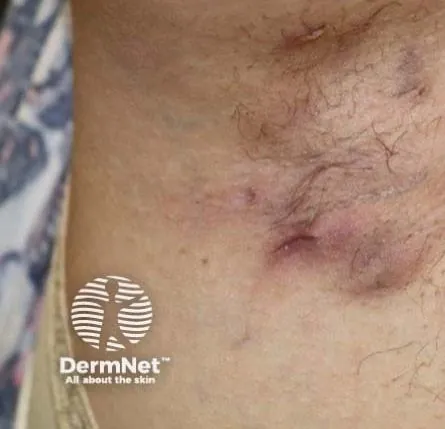
Groundbreaking Study Reveals Secukinumab's Dual Benefits for Hidradenitis Suppurativa Patients
2024-11-16
Author: Nur
A recent analysis of the SUNSHINE and SUNRISE phase 3 trials has uncovered impressive outcomes for secukinumab, a monoclonal antibody, in alleviating not only the physical symptoms of hidradenitis suppurativa (HS) but also the psychiatric comorbidities that often accompany the condition. This research was highlighted at the Society for Dermatology Physician Associates (SDPA) 22nd Annual Fall Dermatology Conference in Las Vegas, Nevada.
The comprehensive analysis involved 1,084 patients with moderate to severe HS who participated in the trials. Subjects were either given a placebo or treated with secukinumab at a dosage of 300 mg every two or four weeks for the first 16 weeks. After this period, those on placebo were transitioned to an active treatment group, allowing researchers to assess long-term effects. Notably, the patient cohort was diverse, with a mean age of 36.2 years and a predominance of female participants (56.3%).
Not only did secukinumab demonstrate sustained efficacy in reducing the severity of HS symptoms, but the drug also enhanced the quality of life, showing a favorable safety profile throughout the year-long study. This study included participants with preexisting psychiatric conditions, such as depression and anxiety, which were prevalent at higher rates than seen in the general population—9.8% for depression and 7.1% for anxiety as compared to 3.8% and 4%, respectively.
The trials employed the European QoL 5-Dimension (EQ-5D) questionnaire to monitor mood and anxiety levels throughout the study. Remarkably, patients receiving secukinumab displayed significant improvement in emotional well-being, with a higher percentage reporting they were "not depressed or anxious" when compared to those in the placebo group. These findings persisted beyond the 52-week marker, reinforcing the potential for secukinumab to not only treat HS but also to uplift patients’ mental states.
To delve deeper into the emotional toll of HS, researchers used the HS Symptom and Impact Diary (HSSID) to gauge participants' mood fluctuations over 24 hours. The results revealed that even patients with a background of psychiatric issues experienced substantial emotional improvements while on secukinumab.
While the overall incidence of psychiatric adverse events was low, just a few serious cases were recorded, mainly involving individuals with a history of depression. Importantly, these findings underscore the necessity of managing HS not only as a physical ailment but as a condition that deeply influences mental health.
The authors concluded, “These findings highlight the positive benefits achieved by patients when treated with secukinumab for HS, particularly regarding their mental and emotional well-being. This suggests a holistic effect resulting from improved physical symptoms.”
As healthcare providers seek comprehensive treatments for HS, this pivotal analysis offers hope for a multifaceted approach—combining effective symptom management with improved psychological outcomes for patients suffering from this debilitating disease. Stay tuned as more data emerges on the transformative potential of secukinumab in dermatology and mental health!



 Brasil (PT)
Brasil (PT)
 Canada (EN)
Canada (EN)
 Chile (ES)
Chile (ES)
 España (ES)
España (ES)
 France (FR)
France (FR)
 Hong Kong (EN)
Hong Kong (EN)
 Italia (IT)
Italia (IT)
 日本 (JA)
日本 (JA)
 Magyarország (HU)
Magyarország (HU)
 Norge (NO)
Norge (NO)
 Polska (PL)
Polska (PL)
 Schweiz (DE)
Schweiz (DE)
 Singapore (EN)
Singapore (EN)
 Sverige (SV)
Sverige (SV)
 Suomi (FI)
Suomi (FI)
 Türkiye (TR)
Türkiye (TR)